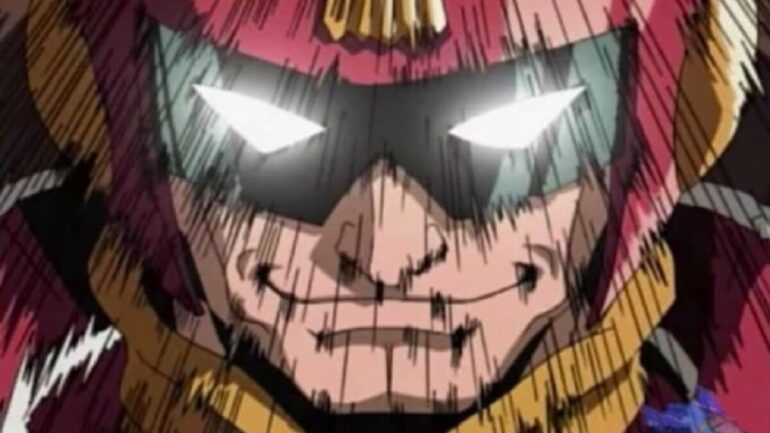Racing games fans of a certain age will fondly remember F-Zero, Nintendo’s anti-gravity racing game that sees players entering the cockpits of a variety of futuristic vehicles that can all do 0-500km/h in the time it takes for you to say “zero”, and then keep going all the way until 2000+km/h. While there have been multiple entries in the series as a whole, F-Zero GX stands as perhaps the most celebrated release for those who love the series, cementing itself as arguably the best racing game ever made. It’s a lofty claim, but I’m standing by it.
Despite plenty of people hoping for the franchise to return, F-Zero has been inactive for a long time now, with the last main console release being GX. If nothing else, the series definitely went out on top. Now, the series feels like it’s been on a 17 year bout of life support, as Nintendo are more than happy to cart out the series mascot when they feel like having a smashing good time, but aren’t willing to create a sequel. Today, we’re asking the question: will we ever see a new F-Zero game?
The History of F-Zero
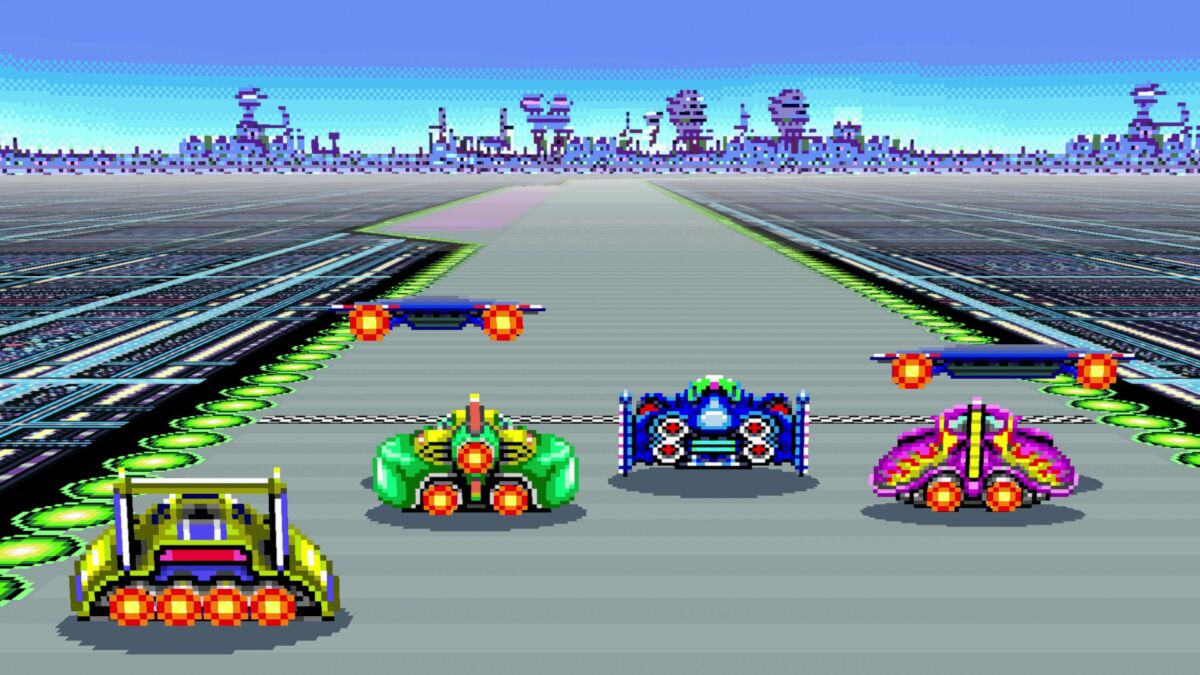
For a series that’s been around for over 30 years, there haven’t been many games in the F-Zero franchise. The series started out as a Super Famicom/SNES title that was released in 1990 for Japan, or 1991 for the rest of the world.
F-Zero for the SNES was groundbreaking for its time due to the use of a technique referred to as “Mode 7 Scrolling”, which allowed background layers to be rotated and scaled in order to create a 3D like effect.
This technique was used to help F-Zero stand out from the pack of racing games at the time. The standard back then for racing games saw the camera either in a top down or isometric position, so placing the camera squarely behind the racer was seen as revolutionary. Coupled with the futuristic setting of antigravity racers duking it out in fast paced, do-or-die races, it meant F-Zero became a popular choice for racing game fans across the world.
Unfortunately, it’d be seven years before fans outside of Japan would see the F-Zero franchise again, but in Japan, Nintendo released BS F-Zero Grand Prix 1 & 2 on the Super Famicom’s satellite based expansion, the Satellaview. These versions of F-Zero updated the original game with new tracks and content, completing the overall experience, but 1998 brought the series to new heights.
Like the original F-Zero, F-Zero X was developed by Nintendo EAD, launching for the N64 across the world in 1998. The sequel finally introduced proper 3D gameplay to the franchise, but the real star attraction was the level of carnage that could occur on screen. Nintendo EAD leveraged the processing power of the N64 to focus on the game’s performance, with F-Zero X running at a consistent 60fps even on an N64, despite having 30 vehicles in every race.
It was a marvellous technical achievement, but one that led to some drawbacks when it came to the graphics, with background details and textures sorely lacking, and the polygon count on other racers dropping harshly the further away they became. The gameplay was still fantastic so it’s not like anyone minded too much, but there was a potential there that was yet to be realised. Some of that was addressed with the Japan-only Expansion Kit for the 64DD, including a track and car editor, but it’d take F-Zero GX to see the game become a real juggernaut.
We’ll get to that.
Before we talk about GX, F-Zero also found itself as somewhat of a handheld darling, with F-Zero: Maximum Velocity releasing for the Game Boy Advance in 2001. Maximum Velocity played pretty similarly to the original game, only with new cars and tracks, and just generally proved that the GBA was a handheld SNES and everyone was fine with that. The GBA also saw two other F-Zero games, GP Legend and the Japan-only Climax, both of which were based on the F-Zero anime. Honestly, my first intro to the series was via Maximum Velocity, and I loved it.
Where’s F-Zero Now?
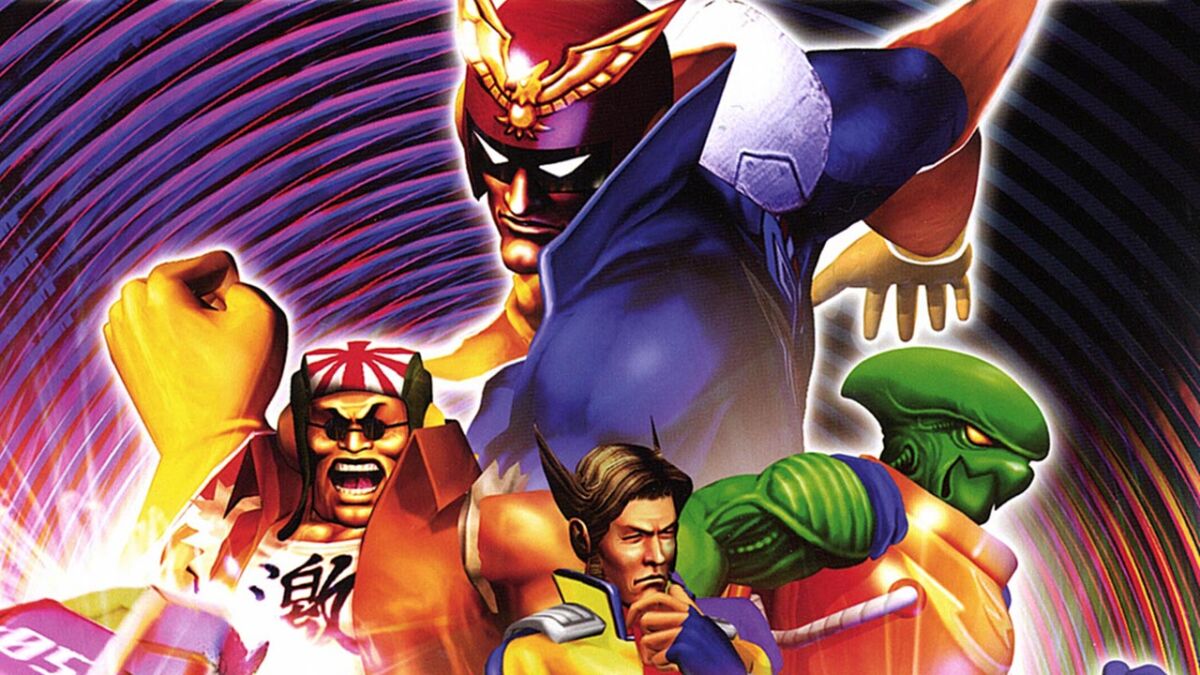
The most recent console release is F-Zero GX on the Gamecube, which was actually a simultaneous release with F-Zero AX in arcades. GX and AX expanded on the formula established in the N64 release, with 30 racers battling each other across complex, futuristic tracks, only this time the game could use the capabilities of the Gamecube to produce graphics that looked fantastic. Even though GX is nearly 20 years old, it’s still quite the looker.
GX also expanded on the series by introducing a story mode, where you played as Captain Falcon as he prepared for the next F-Zero tournament, feuding with eternal rival Black Shadow along the way. While the Story Mode only featured nine chapters of short races, it wasn’t too rare to hear stories of players spending dozens of hours in this mode alone, purely because F-Zero GX was notoriously hard. As far as difficult games are concerned, F-Zero walked so that Dark Souls could run.
F-Zero GX and AX was actually the product of a collaboration between SEGA and Nintendo, with SEGA’s Amusement Vision developing the racing game title. Amusement Vision were the team behind the Super Monkey Ball series, before the team was eventually dissolved into SEGA by 2005. The division’s founder, Toshihiro Nagoshi, is now one of the driving forces behind the Yakuza series, so it’s not like they haven’t been successful since AV’s closure.
The big gimmick behind the two versions of the game was that players could use their Gamecube memory cards at an arcade machine to use special custom vehicles, and that by doing so, you’d also unlock the AX content in the process, such as new tracks and characters. The only issue? The F-Zero AX cabinets were extremely rare, with apparent reports from a fan-compiled database estimating that there are less than 20 confirmed cabinets in all of North America. Fortunately, the AX content could be unlocked in-game, but you had to conquer the hardest gauntlets the game threw at you to do it. If you were like me, you used a cheat from an Official Nintendo Magazine demo disc to unlock the content quickly and just to call it a day.
Why Has F-Zero Been Dormant For 17 Years?
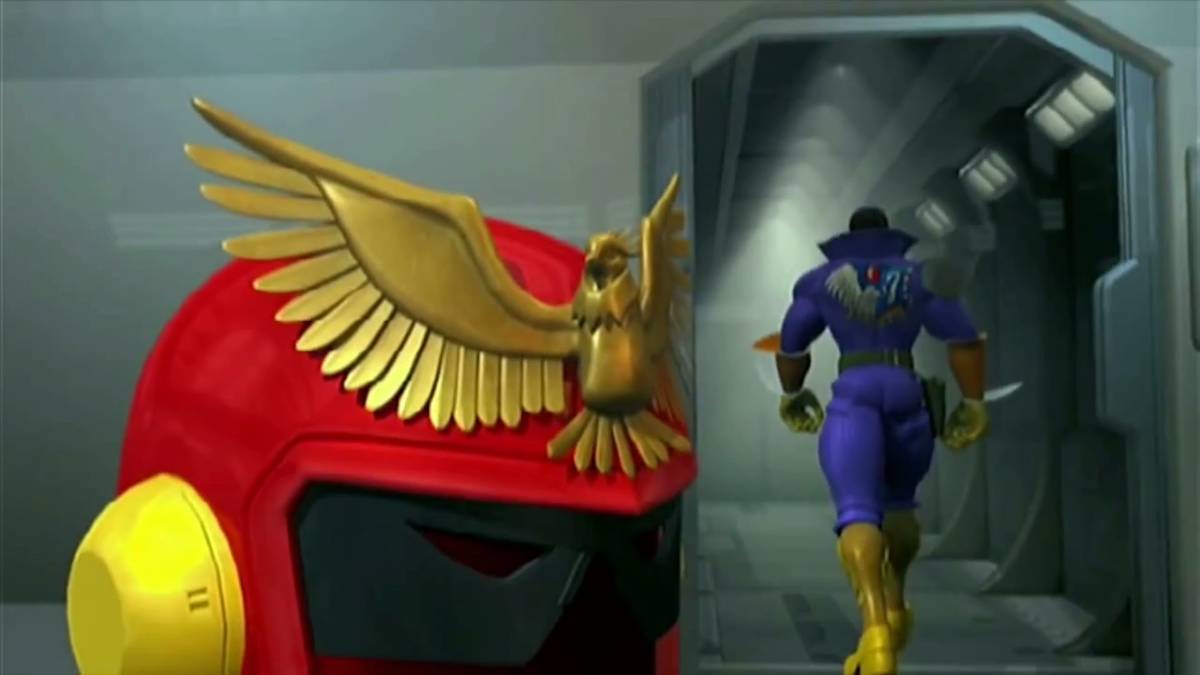
It’s tough to say. Critically, F-Zero GX was considered a success, sitting at an 89 on Metacritic. It’s commercial sales where the story becomes murky. Nagoshi himself remarked in an interview in 2018 that the game managed to sell 1.5 million copies. While that’s certainly an impressive amount, Nintendo games based on first party franchises, especially recently, often dwarf those sales. By comparison, Animal Crossing: New Horizons for the Nintendo Switch has surpassed 31 million sales, which massively eclipses the success of GX.
However, the 1.5 million figure has been disputed by both the VGChartz page, and the VGSales Fandom editorial team, with their reasoning being that “Nintendo has publicly reported all 1st party GameCube games that have sold at least a million to CESA, and F-Zero GX was never listed”. The VGChartz page ranks F-Zero GX at 650,000 total sales worldwide, which is a marked decrease from F-Zero X’s 1.1m sales. That said, it does mention that the sales chart is “under construction”.
While the exact figure might be disputed, we can compare GX’s sales to a fellow Gamecube exclusive that was released in 2003 and also focused on racing: Mario Kart: Double Dash. Double Dash is estimated to have sold 6.88 million copies, making it the second best selling Gamecube game of all time outside of Japan (in Japan, it gets the bronze medal). When comparing Double Dash to F-Zero GX, the sales figures showcase a night and day difference in commercial reception, regardless of whether or not Nagoshi’s 1.5 million sales claim is legitimate.
Will We Ever See A New F-Zero?
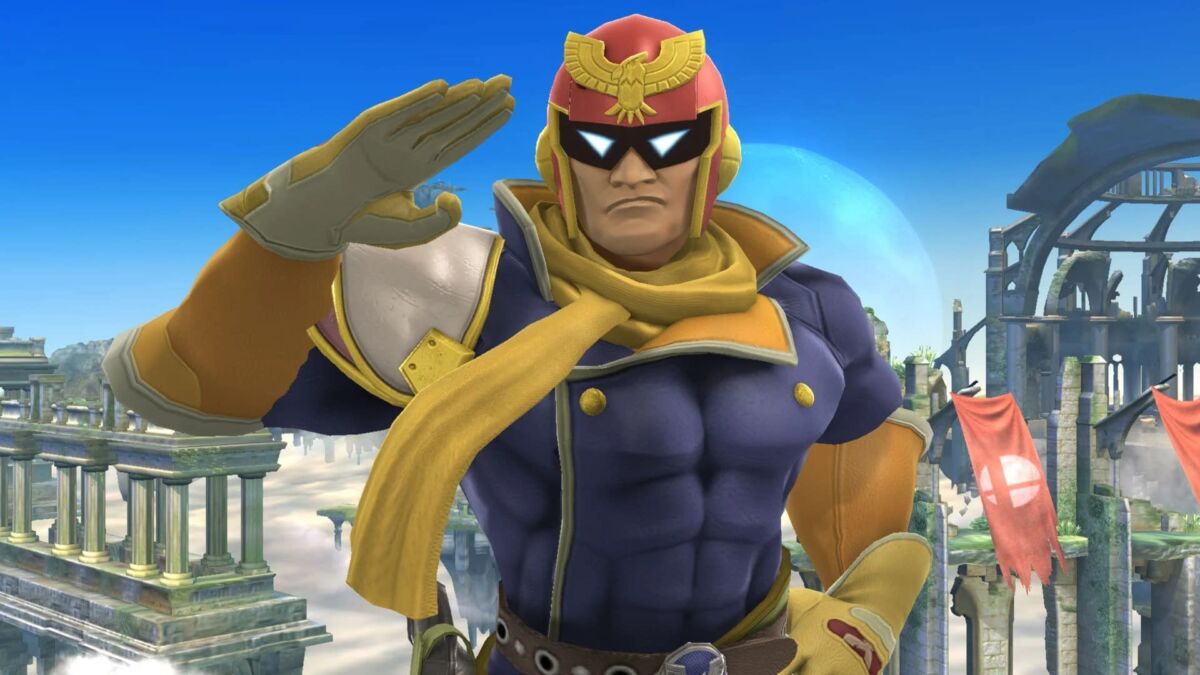
That’s a tricky one, and it’s not looking likely. Nagoshi himself said in 2021 that he’d be willing to work on the franchise again, as a collaboration between SEGA and Nintendo. Speaking to the French Red Bull website, he said: “Putting aside the possibility of this happening, I must admit that I have a great deal of affection for F-Zero GX. If the opportunity presented itself, I wouldn’t be against it. And in this case, I would like to make a game with challenge. I’m assuming that if Nintendo just wants a ‘fun and accessible’ racing game, they already have Mario Kart for that.”
And that’s kind of the problem F-Zero is running into: Nintendo already has Mario Kart, and the most recent version, Mario Kart 8 Deluxe, is still a consistent earner for the Japanese company, and is currently the highest selling Switch game at 33.41 million copies at the time of writing. Animal Crossing is likely to take it over in the future, but that’s not the point. In the UK game sales charts, MK8 Deluxe is still seen mixing it up with the likes of FIFA, GTA and other games that just constantly seem to accrue sales. Why would Nintendo want to divide those sales with a second racing game, especially one that, at best, can only bring in about a quarter of the sales?
To Nintendo’s credit, they have expressed certain interest in revisiting F-Zero. Director Shigeru Miyamoto spoke in an interview with Smosh Games in 2015, stating that they’d be open to returning to F-Zero if there was a new controller interface: “Maybe if we create a new type of controller interface, and we find a controller interface that’s particularly suited for F-Zero, then maybe we’ll do something with it again in the future.” This was two years before the launch of the Switch, which features a new controller interface and yet, the series remains dormant.
We also can’t ignore the fact that Mario Kart 8 Deluxe feels like a mild version of an F-Zero game, only with red shells and chain chomps replacing the energy strips for boost power and other obstacles you’d find in F-Zero. For whatever reason, half the tracks in Mario Kart 8 Deluxe have become these grand, illogical affairs with loops, twists and other gravity-defying traits that are more commonplace in the world of Captain Falcon than Mario. Heck, Deluxe even had a Mute City tribute track.
Speaking of Captain Falcon, the world’s greatest bounty hunter (as opposed to Samus Aran, the galaxy’s greatest bounty hunter) has become a common character in Super Smash Bros., appearing in every version of the game since its inception. If nothing else, F-Zero representation seemingly means more to Nintendo than adding everyone’s favourite arch-rival/sex bomb Waluigi, but until there’s a new F-Zero game, or even just a port of GX, Falcon will simply remain another mascot, in a series filled with them. Just because ROB, Ness and Ice Climbers are in Smash doesn’t mean they’re rolling out the red carpet for them to return in their own games or products, so we shouldn’t expect the same for F-Zero.
The fact that Captain Falcon and F-Zero as a whole is shown in Smash Bros., along with the adoption of core gameplay ideas from the series into Mario Kart, suggests that Nintendo might still hold the F-Zero series in some regard, and the original force behind GX seems open and eager to return to the F-Zero series. However, the lacklustre sales, especially in comparison to Mario Kart and Nintendo’s current crop of titles, would suggest that Nintendo aren’t willing to pull the trigger on what would be quite the financial risk. If given the option between Mario Kart 9 and F-Zero SX (working title), Nintendo will always go for Mario Kart.
If Nintendo were to bring F-Zero back in any capacity, Super Mario 3D All-Stars has proven how they could go about it. Some kind of re-release of F-Zero X and/or F-Zero GX could help Nintendo gauge how interested people are in the series in 2021. Absence makes the heart grow fonder, and 17 years is a pretty big absence. From there, Nintendo could assess whether or not it’s worth developing a brand new game, but I’m sure there’s many who would just love to see GX playable in 1080p on the Switch, or even in handheld. I know I’m one of them.
Nintendo have proved that they can port N64 and Gamecube games to the Switch, and that there’s an audience for them. Not only that, but the costs would be low compared to a brand new release. It’s low risk with a potentially high yield. Will we ever see it? I doubt it, but I would love to be proven wrong.
Seriously, Nintendo. Prove me wrong. Re-release F-Zero GX out of spite, you cowards.
READ MORE: 20 Best Switch Single Player Games You Should Play
Some of the coverage you find on Cultured Vultures contains affiliate links, which provide us with small commissions based on purchases made from visiting our site. We cover gaming news, movie reviews, wrestling and much more.


